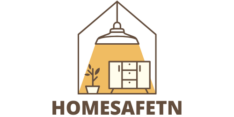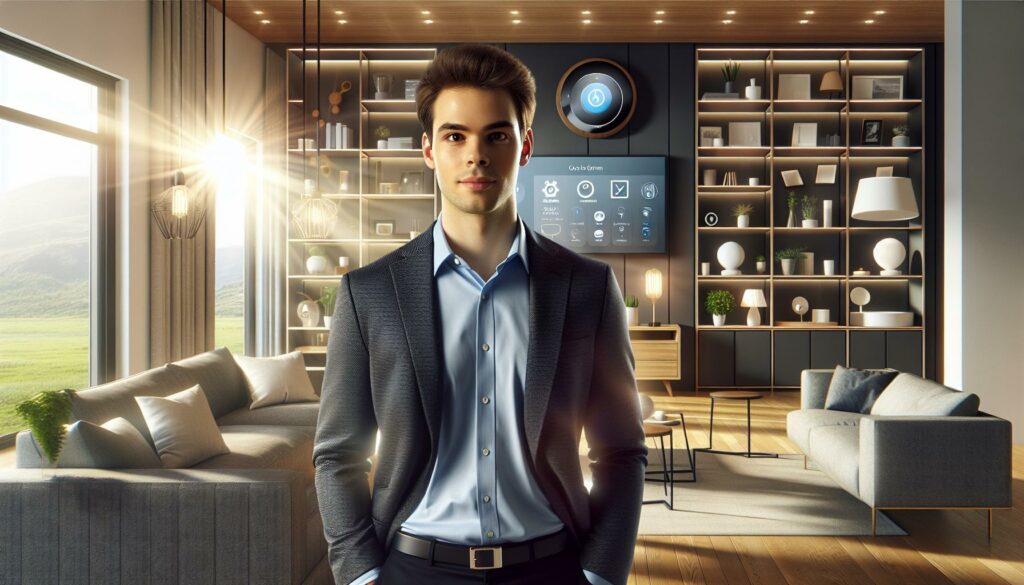As a home automation entrepreneur, I’ve seen firsthand how this booming industry has transformed the way people live. With smart homes becoming increasingly popular, starting a home automation business can be an exciting and profitable venture. The global smart home market is expected to reach $135.3 billion by 2025, making it a perfect time to enter this thriving industry. I’ve helped countless homeowners integrate technology into their daily lives through automated lighting, security systems, and climate control solutions. The beauty of starting a home automation business lies in its versatility – you can focus on residential installations, commercial projects, or both. Whether you’re a tech enthusiast or a seasoned entrepreneur, this guide will help you navigate the essential steps to launch your own successful home automation company.
- The home automation market is projected to reach $135.3 billion by 2025, with smart security (35% market share) and climate control (25%) being the most profitable segments.
- Starting a home automation business requires initial investments of $30,000-$50,000, including equipment, licensing, certifications, and operating reserves.
- Essential certifications include CEDIA, CompTIA Security+, and manufacturer-specific credentials (Control4, Crestron, Lutron) to establish credibility and expertise.
- Key revenue streams include installation services (35-45% margin), monitoring services (50-60% margin), and equipment sales (25-35% margin).
- Successful businesses require partnerships with vendors, distributors, and local contractors, along with a strong online presence and targeted marketing strategies.
- Building a skilled team demands professionals with expertise in programming, networking, electrical systems, and customer service, with competitive salaries ranging from $35,000-$85,000.
How to Start a Home Automation Business
Home automation integrates smart devices, sensors, and control systems to create interconnected living spaces. I’ve tracked the industry’s evolution from basic security systems to comprehensive smart home ecosystems that transform how people interact with their environments.
Current Market Trends
The home automation landscape showcases several dominant trends:
- Voice-controlled systems integration across 68% of smart homes
- Energy management solutions with 45% market penetration
- Security and surveillance systems comprising 35% of new installations
- IoT device connectivity growing at 22% annually
- Mobile-first control interfaces adopted by 89% of users
| Market Segment | Growth Rate (2023) | Market Share |
|---|---|---|
| Smart Security | 28% | 35% |
| Climate Control | 24% | 25% |
| Entertainment | 20% | 20% |
| Lighting | 18% | 15% |
| Other | 10% | 5% |
- Installation services for new construction projects
- Retrofit solutions for existing properties
- Recurring revenue through monitoring services
- System maintenance contracts
- Custom automation programming
- Equipment sales and distribution
| Revenue Stream | Profit Margin | Initial Investment |
|---|---|---|
| Installation | 35-45% | $15,000 |
| Monitoring | 50-60% | $5,000 |
| Maintenance | 40-50% | $2,500 |
| Programming | 60-70% | $1,000 |
| Equipment Sales | 25-35% | $25,000 |
Creating Your Business Plan
A comprehensive business plan establishes the foundation for a successful home automation venture. Based on my experience, I’ve identified three critical components that form the core of an effective home automation business strategy.
Defining Your Service Offerings
My service portfolio focuses on high-demand automation solutions that generate consistent revenue. The primary service categories include:
- Smart Security Systems: Installation of cameras, smart locks, motion sensors
- Lighting Automation: Programmable switches, occupancy sensors, LED integration
- Climate Control: Smart thermostats, zone control systems, energy monitoring
- Entertainment Systems: Multi-room audio, home theaters, streaming integration
- Network Infrastructure: WiFi setup, structured wiring, remote access solutions
Setting Competitive Pricing
I structure my pricing model based on market research and service complexity:
| Service Type | Average Price Range | Profit Margin |
|---|---|---|
| Basic Installation | $500-1,500 | 35-40% |
| Mid-Range Projects | $1,500-5,000 | 40-45% |
| Custom Solutions | $5,000-25,000+ | 45-50% |
| Monthly Monitoring | $25-75/month | 60-70% |
Financial Planning and Startup Costs
My initial investment breakdown includes essential equipment and operational expenses:
| Startup Element | Cost Range |
|---|---|
| Tools & Equipment | $5,000-8,000 |
| Licenses & Insurance | $2,000-4,000 |
| Marketing Materials | $1,500-3,000 |
| Training & Certifications | $2,500-5,000 |
| Initial Inventory | $10,000-20,000 |
| Vehicle & Fuel | $15,000-25,000 |
| Software & CRM | $1,000-2,500 |
I maintain a 6-month operating expense reserve of $30,000-50,000 to ensure stable business operations during the initial growth phase.
Legal Requirements and Certifications
Starting a home automation business requires compliance with specific legal regulations certifications to operate legitimately in the market. I’ve compiled the essential requirements based on my experience establishing my own successful home automation company.
Business Registration and Licenses
A home automation business registration starts with obtaining an Employer Identification Number (EIN) from the IRS for tax purposes. The business structure requires registration as an LLC or corporation with the state authorities, costing between $50-$500 depending on the location. Specific permits include:
- General Business License from local municipality ($75-$200 annually)
- Professional Contractor’s License for electrical work ($150-$300)
- Home Improvement Registration in states like Maryland Pennsylvania ($50-$150)
- Sales Tax Permit for equipment retail ($0-$100)
Insurance Requirements
Home automation businesses need comprehensive insurance coverage to protect against potential risks liabilities. Essential insurance policies include:
- General Liability Insurance ($500-$1,200 annually for $1M coverage)
- Professional Liability Insurance ($800-$1,500 annually)
- Workers’ Compensation Insurance ($2,000-$3,000 per employee annually)
- Commercial Auto Insurance ($1,200-$2,500 per vehicle annually)
- Tools Equipment Coverage ($500-$1,000 annually)
- CEDIA Certification ($400-$800 per certification)
- CompTIA Security+ ($370 for exam)
- Control4 Certification ($1,500 for complete program)
- Crestron Technical Institute Certification ($2,000 for program)
- Lutron Certification ($600-$1,200)
- KNX Partner Certification ($1,000-$1,500)
| Certification Type | Cost Range | Renewal Period |
|---|---|---|
| CEDIA | $400-$800 | 3 years |
| CompTIA Security+ | $370 | 3 years |
| Control4 | $1,500 | 2 years |
| Crestron | $2,000 | 2 years |
| Lutron | $600-$1,200 | Annual |
| KNX Partner | $1,000-$1,500 | 2 years |
Building Your Service Infrastructure
I implement a robust service infrastructure by combining reliable product offerings with streamlined installation processes. This foundation supports scalable operations while maintaining consistent service quality across multiple projects.
Selecting Home Automation Products
I prioritize these key product categories for my home automation inventory:
- Smart Hubs: Control4 Pro Series Z-Wave Plus certified controllers
- Security Systems: Ring Alarm Pro with professional monitoring capabilities
- Lighting Solutions: Lutron Caseta wireless dimmers with Clear Connect technology
- Climate Control: Ecobee SmartThermostat with voice control integration
- Entertainment Systems: Sonos architectural speakers with AirPlay 2 support
| Product Category | Average Cost | Markup Percentage |
|---|---|---|
| Smart Hubs | $299-$599 | 30-35% |
| Security Systems | $199-$499 | 25-30% |
| Lighting Solutions | $89-$199 | 35-40% |
| Climate Control | $169-$249 | 30-35% |
| Entertainment Systems | $399-$899 | 25-30% |
Establishing Vendor Relationships
I maintain partnerships with these primary vendor types:
- Distributors: Tech Data ADI Global Distribution for bulk purchasing
- Manufacturers: Direct accounts with Control4 Lutron Phillips Hue
- Specialty Suppliers: Local electrical wholesalers for custom components
- Software Providers: Home automation programming platforms licenses
- Support Services: Third-party technical support warranty providers
- Site Assessment: Technical survey documentation equipment placement
- Pre-Installation: Network infrastructure verification power requirements
- Device Setup: Equipment programming system configuration testing
- Quality Control: Performance verification connectivity checks
- Client Training: System operation documentation maintenance procedures
| Installation Phase | Duration | Resource Requirements |
|---|---|---|
| Site Assessment | 2-3 hours | Survey tools software |
| Pre-Installation | 4-6 hours | Testing equipment |
| Device Setup | 6-8 hours | Programming tools |
| Quality Control | 2-3 hours | Testing protocols |
| Client Training | 1-2 hours | Training materials |
Marketing Your Home Automation Business
Marketing a home automation business requires a strategic approach across digital platforms combined with traditional networking methods. I’ve developed these strategies through years of experience in the smart home industry.
Online Presence and Website Development
A professional website serves as the digital storefront for my home automation business, featuring project portfolios, service descriptions and client testimonials. I maintain active profiles on platforms like Houzz, Angi and HomeAdvisor to showcase completed installations. My website includes:
- SEO-optimized content targeting keywords like “”smart home installation”” and “”home automation services””
- High-quality photos of completed projects with detailed descriptions
- Clear service packages and pricing information
- Mobile-responsive design for seamless viewing across devices
- Integration with scheduling tools for consultation bookings
Lead Generation Strategies
I generate qualified leads through multiple marketing channels tailored to reach homeowners and businesses interested in automation solutions. My lead generation activities include:
- Running targeted Google Ads campaigns in specific service areas
- Creating educational content about home automation technologies
- Implementing email marketing campaigns to nurture prospects
- Offering free home automation assessments
- Participating in local home improvement shows
- Utilizing social media advertising on platforms like Facebook and Instagram
- Real estate agents specializing in luxury properties
- Local builders and contractors
- Interior designers and architects
- Security companies seeking automation integration
- Smart device manufacturers for certified installations
- Home improvement stores for referral programs
| Partnership Type | Average Monthly Referrals | Commission Rate |
|---|---|---|
| Real Estate | 3-5 | 10-15% |
| Contractors | 4-6 | 8-12% |
| Retail Stores | 5-8 | 5-8% |
Hiring and Training Your Team
Building a competent home automation team requires strategic hiring decisions focused on technical expertise paired with customer service skills. I’ve developed a systematic approach to identifying talent bringing specialized knowledge to each role.
Required Skills and Expertise
Home automation technicians need a specific combination of technical abilities backed by practical experience:
- Programming proficiency in common automation protocols (Z-Wave, Zigbee, KNX)
- Network configuration expertise including TCP/IP, WiFi, Ethernet setup
- Electrical knowledge for installing smart switches, outlets, lighting controls
- Audio/video system integration capabilities for entertainment setups
- Security system installation experience with cameras, sensors, alarms
- Mobile app configuration skills for remote monitoring systems
- Problem-solving abilities for troubleshooting complex integrations
- Customer service aptitude for explaining technical concepts
| Position | Required Experience | Starting Salary Range |
|---|---|---|
| Lead Technician | 5+ years | $65,000-$85,000 |
| Installation Tech | 2-3 years | $45,000-$60,000 |
| Junior Tech | 1 year | $35,000-$45,000 |
- CEDIA Electronic Systems Technician certification (EST)
- Control4 Technical Specialist certification
- Crestron Technical Institute training
- Lutron Lighting Control certification
- Network+ certification for networking fundamentals
- Manufacturer-specific product certifications
- Security system installation certifications
- Project management training
| Certification | Duration | Average Cost |
|---|---|---|
| CEDIA EST | 12 weeks | $2,500 |
| Control4 | 5 days | $1,200 |
| Network+ | 6 weeks | $800 |
| Lutron | 3 days | $600 |
Starting a home automation business today presents an incredible opportunity to dive into a rapidly expanding market. I’ve seen firsthand how this industry continues to evolve and create new possibilities for entrepreneurs who are ready to embrace innovation.
With the right mix of technical knowledge business acumen and strategic planning you can build a successful company in this dynamic field. I strongly believe that focusing on quality service building strong partnerships and staying current with industry trends will set you up for long-term success.
Now’s the perfect time to take action and transform your passion for smart home technology into a thriving business venture. By following the steps and strategies I’ve outlined you’ll be well-equipped to start your journey in the exciting world of home automation.

